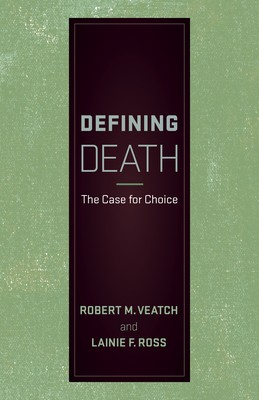
- We will send in 10–14 business days.
- Author: Robert M Veatch
- Publisher: Georgetown University Press
- ISBN-10: 1626163545
- ISBN-13: 9781626163546
- Format: 14 x 21.6 x 1.4 cm, kieti viršeliai
- Language: English
- SAVE -10% with code: EXTRA
Reviews
Description
For most of human history there was little question about whether someone was dead or alive--a heartbeat or a pulse, or a foggy mirror under the nostrils, provided sufficient evidence. But in the mid-20th century, with new technologies and medical interventions that prolonged the dying process, the questions around the precise moment of death became much more complicated. Today the global medical community recognizes three general definitions of death: whole-brain, circulatory or somatic, and higher-brain. But even in the United States alone no single concept of death has the support of the majority of its citizens. Despite attempts to create and establish a uniform definition of death, physicians and policymakers continue to disagree on criteria and standards--resulting in confusion and acrimony in medicine, law, and insurance, not to mention families gathered around the bedside of a dying loved one. In this brief introduction Veatch and Ross lay out the history of this contentious issue and describe the three major definitions of death in detail. They contend that choosing a particular definition of death reflects an individual's basic religious and philosophical beliefs about what is essential to human existence. So while they propose higher-brain death as a default policy, they argue for some degree of personal choice.
EXTRA 10 % discount with code: EXTRA
The promotion ends in 21d.04:17:52
The discount code is valid when purchasing from 10 €. Discounts do not stack.
- Author: Robert M Veatch
- Publisher: Georgetown University Press
- ISBN-10: 1626163545
- ISBN-13: 9781626163546
- Format: 14 x 21.6 x 1.4 cm, kieti viršeliai
- Language: English English
For most of human history there was little question about whether someone was dead or alive--a heartbeat or a pulse, or a foggy mirror under the nostrils, provided sufficient evidence. But in the mid-20th century, with new technologies and medical interventions that prolonged the dying process, the questions around the precise moment of death became much more complicated. Today the global medical community recognizes three general definitions of death: whole-brain, circulatory or somatic, and higher-brain. But even in the United States alone no single concept of death has the support of the majority of its citizens. Despite attempts to create and establish a uniform definition of death, physicians and policymakers continue to disagree on criteria and standards--resulting in confusion and acrimony in medicine, law, and insurance, not to mention families gathered around the bedside of a dying loved one. In this brief introduction Veatch and Ross lay out the history of this contentious issue and describe the three major definitions of death in detail. They contend that choosing a particular definition of death reflects an individual's basic religious and philosophical beliefs about what is essential to human existence. So while they propose higher-brain death as a default policy, they argue for some degree of personal choice.


Reviews